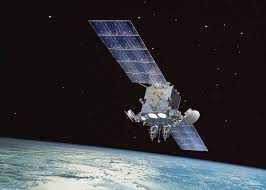The deregulation and privatisation of communication industries opened up the international space to free flow of information and communication industries. Digital technologies further propelled international communication through the satellite industry, enabling a global communication infrastructure for telecommunications, broadcasting and more recently, electronic commerce. This advancement also shifted communication from a state centric view to private control. It has affected policies both in the international and local space. Global communication is reminiscent of structural imperialism and modernisation theory and its impact shows the relevance of the McBride report.
In line with the modernisation theory, it was assumed that the creation of a global communication infrastructure would lead to economic growth through the transfer of skills and capital to the developing countries. However, it has widened the gap between the rich and the poor because international communication was shaped by trade market standards, which suit the transnational corporations, and not by political considerations which is to the detriment of the local population. The overall improvement of life for the public population is dependent on the equitable distribution of wealth for the public good.
In the same line of thought, structural imperialism is at play because majority of the TNCs are from the centre yet the developed countries closely guard their markets, unlike the periphery who made substantial reduction in tariff barriers. The USA and the EU have strict regulations on the movement of labour. In recent developments, the US embassy in Kenya resumed limited processing of visas, with interview bookings slotted for a year after application.
Another aim of global communication infrastructure was to break public monopoly and enable private telecommunication networks to operate in the national telecommunication space. Nevertheless, large TNCs such as News Corporations owned by Rupert Murdoch, resulted in private monopoly. Murdoch capitalised on the liberalised cross-media ownerships and created an international corporation that extended its tentacles from the Global North (owns a large share of digital television, english-language newspapers and broadcast networks such as Fox News Channel) to the Global South (the Pan-Asian networks, etcetera). This expansive ownership has empowered Murdoch to influence politics. His media supported Margaret Thatcher to liberalise regulations on cross-media ownership for his personal gain. He also backed President George Bush during his ‘war on terror.’ His media, Fox news, framed the war as an operation to free Iraq and Afghanistan from dictatorship.
As a consequence, private monopolies push their interests at the cost of the periphery. The power they wield begs the question at what cost is their perspective sold? What effect does it have on the truth? This was clear in the storytelling of the war on Iraq when it emerged that the Bush administration invaded the country for their economic benefits, to the detriment of the Iraqi civilians to this day. The same comparison can be drawn in the Kenyan context. The Kenyan media houses display content based on the politicians they support. For example, Citizen media reinforces Azimio la Umoja in support of its candidate Raila Odinga. This raises doubt on whether their news is objective and if it serves the interest of the public or the ruling class.
Another notable change of global communication is the move from educational content to entertainment and infotainment. The content of broadcast media in the 1980’s and 1990’s was predominantly educational to spread awareness on a country’s development process and to gradually change traditional values and practices in society. The Iraqi and Syrian governments used mass media to eradicate illiteracy. Mass media documented and spread awareness on this process by visually displaying successful development projects so as to persuade the population on the gains of its economic achievements. This increased Iraqis participation in the development process. Evidently today, broadcast media is majorly dominated by the entertainment industry. It is fair to conclude that this has widened the gap between the rich and the poor because broadcast television provided education to the poor as was seen in Turkey whereby the poor could get certified degrees from the education broadcasted on television.
Satellite communications enabled the spread of worldwide movements that aimed to encourage and strengthen bonds of solidarity either based on indigenous and diaspora ethnic groups from the same geo-linguistic locations or shared interests. A federation of Arab League member states launched its first communication satellite called Arabsat. Its growth was ensured by the linguistic, religious and cultural accord between Arab countries and Arabs in the diaspora, birthing the likes of Middle-East Broadcasting Centre (MBC) and round the clock news broadcasters such as Al-Jazeera and Al-Arabiya. Another example is the broadcast of sports which has become a global phenomenon that transcends race and culture. Football fans all over the world subscribe to different teams and have an emotional connection to the clubs. This has created a plethora of opportunities for broadcasters and club owners to monetise from their fierce loyalty.
Global communication has tipped the balance in favour of the global North. Prioritisation of service sectors have benefited the centre at the expense of the citizens of the global south in numerous ways. Even so, the free flow of information created a new global market system and a new environment for the spread of political, economic and cultural ideas.


Be First to Comment